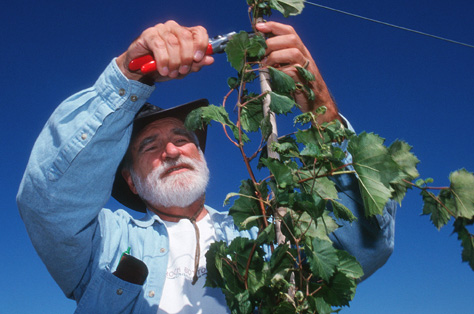
The UNL viticulture program is part of a multi-state team that received a $2.5 million grant from the U.S. Department of Agriculture's National Institute of Food and Agriculture Specialty Crop Research Initiative. The grant will tackle the obstacles in vineyards, wineries, tasting rooms and tourism to bring cold hardy grapes to a wider market.
While it's been established that wine grapes can be grown in cold climates, it isn't clear yet how the wine industry that's been developed in the upper Midwest and northeast can take the next steps toward economic viability, said Paul Read, UNL viticulturist.
These challenges include: determining the best growing conditions, how to modify the grapes' higher acidity and showcase their aroma and how to build tourism networks to draw visitors to tasting rooms, where a majority of sales take place.
Read will conduct research and lead extension efforts surrounding these challenges, including: trellis systems and vineyard management techniques with a target of enhancing fruit quality and thus improved wine quality and harvest timing and canopy management in relation to high acidity in northern grape cultivars.
"I find it exciting to be a part of a project involving historically strong programs, such as that at Cornell University, which has a long-standing record of grape and wine research," Read said. "Prospects for the future are indeed ripe because of the breeding efforts of the University of Minnesota and private breeders, such as the late Elmer Swenson (a Wisconsin grape breeder) and Ed Swanson (one of Nebraska's pioneers in the grape and wine industry)."
Nebraska's wine industry has been growing rapidly and now includes more than 27 wineries.
The project will partner with grower organizations from across the northern U.S. including the Nebraska Winery and Grape Growers Association.
Along with UNL scientists, the 12-state interdisciplinary consortium includes researchers from Cornell University, Iowa State University, Michigan State University, Oklahoma State University, North Dakota State University, South Dakota State University, the Connecticut Agricultural Experiment Station and the University of Minnesota.
— Sandi Alswager Karstens, IANR News